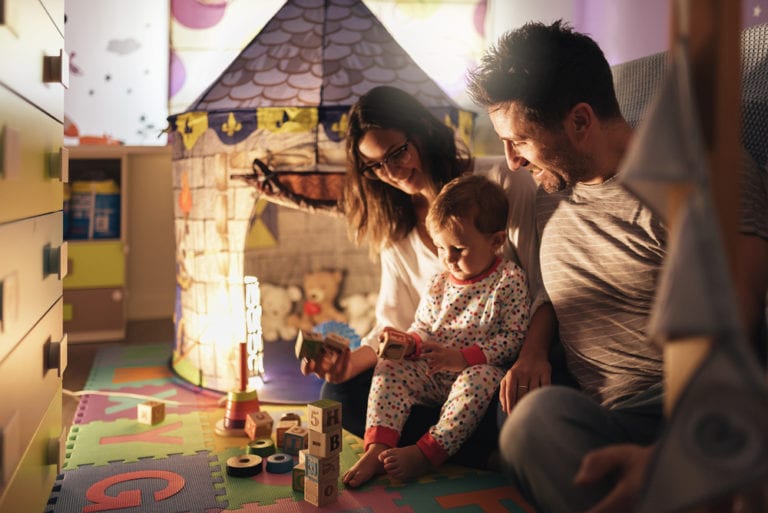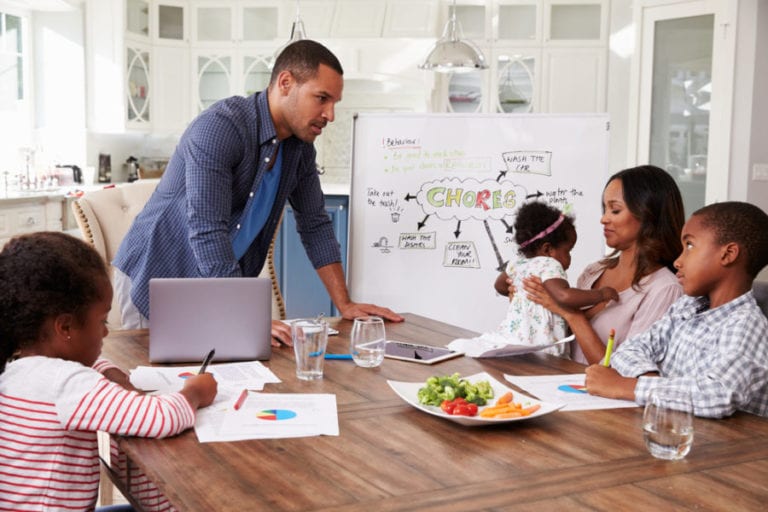21 Things Kids Need From Their Parents for Healthy Development
Disclosure: This post may contain affiliate links, meaning I may get a small commission if you decide to make a purchase through my links, at no cost to you.

Raising Children: 21 Things Kids Need From Their Parents
Yep, parents have an essential part to play in forming their kids’ characters and assisting them to develop into balanced people. We want our kids to grow up as kind and happy adults. And we parents have an integral role in forming our children’s characters and aiding them to become competent individuals.
This blog post will delve into some of the most important aspects of parenting that often go overlooked. We’ll explore how essential safety, security, emotional support, and quality education are for your child’s development.
We’ll discuss why avoiding labels and encouraging self-expression is an important thing. You’ll learn about balancing guidance with freedom through authoritative parenting and understand how spending quality time can strengthen your relationship with your child.
Furthermore, we will highlight the importance of fostering exploration over digital entertainment, discipline as a form of teaching respect, family dinners, and one-on-one time. trusting your instincts as a parent plays a significant role in understanding what kids need from their parents.
Table of Contents:
- Essential Needs for Children’s Development
- Avoiding Labels and Encouraging Self-expression
- Balancing Guidance with Freedom through Authoritative Parenting
- The Importance of Quality Time Spent Together
- Encouraging Exploration Over Digital Entertainment
- Discipline as a Form of Teaching Respect
- Family Dinners and One-on-One Time
- Trusting Your Instincts As A Parent
- FAQs in Relation to Things Kids Need From Their Parents
- Trusting Your Instincts as a Parent
- Letting Children Take the Lead: A Recipe for Success
- Conclusion
- Bonus: How Successful Parents Set Their Kids Up for Success
Essential Needs for Children’s Development
As a guardian, it is imperative to be aware of the eight crucial necessities that aid in your kid’s progress into an accomplished and joyous adult. These include feeling safe and secure, having basic survival needs met, receiving consistent emotional support, and getting a quality education.

Providing Safety and Security
Safety is crucial for your child’s healthy social skills and high self-esteem. Check out this study by the National Institutes of Health to learn more.
Meeting Basic Survival Needs
Food, water, shelter, and clothing are fundamental for any child. The World Health Organization provides an excellent resource on how to meet these basic health necessities for kids.
Offering Consistent Emotional Support
A stable emotional environment allows children to express themselves freely without fear of judgment or punishment. This includes providing love and security, as well as discipline when necessary.
Ensuring Quality Education
An enriching educational experience fosters intellectual curiosity in young minds, aiding in overall cognitive development. This guide from the American Psychological Association provides parents with strategies to help their kids become prepared for school.
Avoiding Labels and Encouraging Self-expression
Creating an environment where kids feel comfortable expressing themselves is crucial. As parents, we must avoid labeling our child’s behavior or interests such as smart, pretty, or a terror. Instead, let’s foster curiosity about who they’re becoming.
The Dangers of Labeling Behavior
Labels can limit your child’s potential growth, creating self-fulfilling prophecies that restrict the exploration of different identities and experiences. It might lead them to believe they’re only valued for certain characteristics or achievements.

Fostering Curiosity About Personal Growth
Being curious about your child’s personal growth encourages them to explore passions freely without fear of judgment. This approach provides real care, concern, warmth, and affection – all elements that make a child feel safe and loved in their own home.
Here are some ways to encourage self-expression:
- Show interest in their activities: Ask questions about what they’re doing and why they enjoy it.
- Encourage creativity: Provide resources like art supplies or musical instruments.
- Praise effort over outcome: Celebrate trying new things more than achieving specific results.
In essence, fostering an environment where kids can express themselves openly helps build confidence and trust between parent and child – key ingredients for successful parenting.
Balancing Guidance with Freedom through Authoritative Parenting
Creating a balance between providing direction and granting liberty is essential for successful parenting, achieved through authoritative parenting which combines clear expectations with empathy. This delicate equilibrium can be achieved by adopting an authoritative parenting style, which combines high expectations with understanding and respect.
What Does it Mean to be Authoritative?
When it comes to parenting styles, there are three main types: authoritarian, permissive, and authoritative. While each style has its own unique characteristics, research shows that parents who use an authoritative approach tend to have the most success in raising well-adjusted children.
The Characteristics of Authoritative Parenting
Authoritative parents are firm but fair. They set clear rules and boundaries for their children while also allowing them some degree of freedom and independence. Unlike authoritarian parents who demand obedience without explanation or permissive parents who let their kids do whatever they want, authoritative parents take a balanced approach.
Here are some key characteristics of authoritative parenting:
- Open communication: Parents encourage their children to express themselves openly and honestly.
- Fair discipline: When rules are broken, consequences follow—but these consequences aren’t arbitrary or overly harsh.
- A focus on education: Children learn not just from school but from family members as well; thus spending quality time with them is an important thing that should never be ignored by busy parents.
- A strong relationship: Parents work hard at building a strong bond with their kids through spending quality time together such as playing games or having meals together regularly so that trust can develop between both parties.
By being supportive yet still maintaining authority over your child’s behavior, you can help ensure they grow up feeling confident in themselves while respecting others around them too!
It’s important for busy families to find balance amidst all the chaos. By incorporating elements of an authoritative parenting style into your daily routine – like open communication and setting clear expectations – you’ll create a happier home environment where everyone feels heard and valued.
So if you’re looking for ways to strengthen your family connections one moment at a time, then consider adopting an authoritative parenting style. Your kids will thank you for it in the long run!
Behavioral Control vs. Psychological Control: What’s the Difference?
As parents, we all want what’s best for our children. We want them to be happy, healthy, and successful in life. But sometimes it can be difficult to know how to achieve those goals while still maintaining a strong relationship with our kids. One thing that researchers have found is that parents who tend to apply behavioral control rather than psychological control are more likely to have happier and more satisfied children. So what exactly is the difference between these two types of parenting?
Psychological Control
Psychological control involves trying to manipulate or control a child’s emotional state or beliefs. This might include things like:
- Guilt-tripping your child into doing what you want
- Invading their privacy by reading their diary or monitoring their online activity
- Fostering dependence by not allowing your child to make decisions on their own
Research has shown that children who grow up with parents who use psychological control tend to have lower levels of mental well-being than adults. If you’re worried about falling into this trap, try focusing instead on building a strong emotional connection with your child through spending quality time together and showing empathy towards their feelings. This can help children learn to trust their family members and build a strong relationship with them.
Behavioral Control
On the other hand, behavioral control involves setting limits on behavior that could be harmful or dangerous. Examples of this might include:
- Setting curfews for when your child needs to come home at night
- Making sure they complete homework assignments before watching TV or playing games
- Giving them chores around the house so they learn responsibility
By providing clear boundaries and expectations for your child’s behavior without resorting to guilt trips or manipulation, you can help them develop a strong sense of self-discipline and responsibility. This is an important thing for children to learn as they grow up and become more independent.
Of course, every child is different, and there’s no one-size-fits-all approach to parenting. But by focusing on behavioral control rather than psychological control, you can help your child grow up to be happy, healthy, and successful in life.
So next time you’re tempted to guilt-trip your child into doing something or invade their privacy without good reason, take a step back and think about how you could instead set clear boundaries for their behavior while still showing empathy towards their feelings.
Spending quality time with your child and playing games together can also help build a strong relationship with them. Your kids will thank you for it in the long run!

Implementing Flexible Routines
Flexible routines provide structure without stifling creativity or independence. They give kids a sense of security while also teaching them about responsibility and time management. However, flexibility is key – rigid schedules can cause stress and limit opportunities for spontaneous learning experiences.
Resisting Commercial Exploitation
In our consumer-driven society, it’s easy to fall prey to companies that capitalize on parental guilt by selling products claiming to enhance your child’s growth or intelligence. But remember: no toy or gadget can replace the value of quality interaction and engagement with you as their parent. Instead of spending money on unnecessary items, invest in activities that promote bonding like exploring nature or reading together.
The bottom line? Trust yourself as a parent – you know what’s best for your child more than any marketer does.
The Importance of Quality Time Spent Together
Spending quality time with your children is not just about having fun. Nurturing the bond between parent and child is essential for growth and overall well-being, making quality time together a must. According to Dr. Rotbart, it could be considered as the miracle solution for most dilemmas of parenthood.
Related: Why Have Family Meetings?
Engaging in Games and Playtime Activities Together
Taking time out to play games or engage in activities together creates a bond between parents and children, fostering trust and open communication. One of our favorites is family movie night. These shared experiences provide opportunities for learning, problem-solving, creativity, and physical activity while also making lasting memories. Let’s ditch the phones and why not have a family game night.
Beneficial Bedtime Conversations
A bedtime routine isn’t only about getting kids ready for sleep; it’s also an excellent opportunity for meaningful conversations. Discussing their day, reading stories together, or simply chatting about various topics can strengthen emotional bonds while helping them wind down from the day’s activities. Plus, it’s a great way to sneak in some extra snuggles.
Unplugging for Quality Time
In this digital age where everyone seems glued to screens most of the time, remember that nothing replaces personal interaction when it comes to building strong family connections. So let’s put our phones away more often and focus on spending quality moments with our little ones because they grow up faster than we think. Need some inspiration? Check out these fun family activity ideas.
Encouraging Exploration Over Digital Entertainment
Nowadays, with digital technology at our fingertips, it’s effortless to turn to screens for amusement. But, it’s important to encourage your child’s creativity and exploration for their imagination development. This means limiting screen time and promoting activities that foster imaginative play.
Promoting Dress-Up Play For Imagination Development
Dress-up play allows children to explore different roles while developing their imaginative skills. It provides an opportunity for them to step into various characters’ shoes – from superheroes to princesses or even mom and dad. They learn about empathy, problem-solving skills, and gain a broader understanding of the world around them.
Creating a dress-up box filled with old clothes, hats, scarves, or costume jewelry can provide hours of fun. You could also encourage your kids to make their own costumes using cardboard boxes or craft materials, which adds another layer of creative expression.
Beyond dress-up play, there are other forms of creative activities like arts & crafts, building blocks, or outdoor nature explorations that equally stimulate imagination while reducing reliance on digital entertainment.
The key here is balance – there’s nothing wrong with some screen time, but supplementing this with more hands-on creative experiences will greatly benefit your child’s overall development in the long run.

Discipline as a Form of Teaching Respect
Parents must recognize that discipline is more than just a means of establishing and enforcing regulations; it should be seen as an avenue to instruct children on respect. Instead, discipline should be viewed as a form of teaching respect. It’s an opportunity to teach children about boundaries while showing respect toward others’ feelings and actions.
Discipline Teaches Boundaries and Respect
The goal of discipline is to help children develop self-control and learn how their behavior affects those around them. This understanding helps kids become more empathetic and respectful individuals. Here are some ways you can instill these values:
- Show empathy: When disciplining your child, show understanding for their feelings even when they’ve made a mistake.
- Create clear expectations: Set clear boundaries so your child knows what’s expected of them.
- Praise good behavior: Positive reinforcement encourages repeat behaviors that demonstrate respect for others.
Beyond this, remember that small gestures like leaving notes in their lunch bag or backpack serve as reminders that they are loved and cherished even when you’re apart from each other. These little acts foster a sense of security, which further aids in building respectful attitudes within your child.
Inculcating discipline with love and care goes beyond mere rule enforcement – it becomes an integral part of shaping responsible adults who value mutual respect above all else.

Family Dinners and One-on-One Time
There’s something special about family dinners. Family dinners provide sustenance for both the body and spirit, creating a space to strengthen relationships and foster dialogue. Sitting down together as a family offers invaluable bonding opportunities and helps foster open communication.
Benefits of Family Dinners
Involving kids in meal preparation tasks is an excellent way to teach them life skills while spending quality time together. At the dinner table, everyone can come together to exchange tales of their day, share funny moments, and create lasting memories. The dinner table becomes an abode of affection, education and solidarity.
Beyond group settings like family dinners though lies another important aspect of parenting – dedicated one-on-one time with your child.
Insights Gained from One-on-One Time
Spending individual time with each child allows you a unique insight into their personalities and interests. This understanding can equip you better to guide them through various situations they encounter in life. Whether it’s reading bedtime stories or going for walks together, these moments are precious chances to connect deeply with your child and understand who they truly are becoming.
The key takeaway here is that both group activities like family meals and personal one-on-one interactions play crucial roles in fostering strong parent-child relationships.
Why Time Is So Important
Kids learn from their family members, especially their parents. Spending quality time with your children helps build a strong relationship between you and your child. When you spend time together playing games or doing other activities, you create memories that will last a lifetime.
According to Dr. Rotbart, “Time is the miracle solution for most dilemmas of parenthood.” Taking just minutes or hours out of your day can help fulfill all of your child’s essential needs – physical, emotional, and mental.
Making Time For Your Children
We know how busy life can be as a parent but making an effort every day to spend some quality time with our kids should always be at the top of our priority list! Here are some tips on how you can find more opportunities for bonding:
- Schedule regular family game nights where everyone participates in fun activities together!
- Create traditions like baking cookies together during holidays or having movie marathons over weekends!
- Incorporate small moments into everyday routines such as reading bedtime stories before sleep-time!
No matter what activity it may be – big or small – these little moments spent with our children are priceless! The key takeaway here is not about quantity but rather quality; ensuring each moment spent with them counts towards building stronger relationships within families
Trusting Your Instincts As A Parent
As a parent, your instincts are your secret weapon. That gut feeling you get when something doesn’t feel right or when you know exactly what to do in a challenging situation can be invaluable. Trusting your instincts can be a valuable asset in ensuring the best outcome for your child.
Trust Your Common Sense
Utilizing your inherent wisdom is essential to making decisions concerning your offspring. Whether it’s choosing the right school, deciding on appropriate discipline, or setting screen time limits, trust your instincts and personal judgment. No single solution is universal.
It’s also important to keep communication open with your children. Invite your children to open up and express themselves, no matter the topic. This helps create a supportive environment where they feel safe and heard.
Ultimately, as long as you’re providing love and care while setting clear boundaries grounded in respect, trust that you’re doing an excellent job as a parent. Every family is unique, so don’t hesitate to trust your own common sense. You know your children best and can navigate any challenges that come your way.
Letting Children Take the Lead: A Recipe for Success
As parents, we want to give our children every opportunity to succeed in life. We enroll them in after-school activities, help with homework, and encourage good behavior. But sometimes, the best thing we can do is step back and let our kids take the lead.
According to a recent study led by Stanford University professor Jelena Obradović, too much parental direction can actually hinder a child’s ability to regulate their emotions later on. The study looked at children who were cleaning, playing games or discussing problems with their parents. Those whose parents stepped in frequently had more difficulty controlling their attention and behavior.
So what does this mean for busy parents? It means that we need to find ways of letting our kids take charge while still providing guidance when needed. Here are some tips:
1) Let Your Child Make Decisions
Children learn from making choices – even if they don’t always make the right ones! Giving your child opportunities to decide things like what game they want to play or what book they want you to read together before bed allows them to practice decision-making skills that will serve them well throughout life.
2) Encourage Independence
By allowing your children space and freedom within safe limits, it gives them an opportunity to build the independence skills necessary for success later on in life.
In summary, letting go of control isn’t easy but it could be beneficial when raising successful adults. The Beehive Connection blog has great resources available to help families strengthen bonds and develop healthy habits.
things kids need from their parents – Social Skills

Teaching Social Skills: A Key to Your Child’s Success
As parents, we all want our children to succeed in life. We dream of them having a fulfilling career, a happy family, and an overall contented life. But how can we ensure that they achieve this? The answer lies in teaching them social skills.
According to a 20-year study conducted by Pennsylvania State University and Duke University, socially competent children tend to be more successful as adults than those with limited social skills. These kids are better at cooperating with their peers without prompting, being helpful to others, understanding their feelings, and resolving problems on their own.
The research found that such kids were far more likely to earn a college degree and have full-time jobs by the age of 25 than those who lacked these skills. On the other hand, individuals with poor social skills had higher chances of getting arrested or applying for public housing.
It is crucial for parents not only to focus on academic success but also on developing strong relationships between family members through quality time spent together playing games or doing fun activities like baking cookies or going out for picnics.
The Importance of Spending Quality Time With Your Kids
Spending quality time with your child helps build trust and creates memories that last forever. It provides opportunities for bonding while teaching valuable lessons about communication, teamwork, and problem-solving which help develop healthy relationships throughout life.
Here are some ideas you can try:
- Play board games together.
- Cook meals together.
- Go hiking or biking.
- Create art projects together.
In conclusion, helping your child develop social-emotional intelligence should be one of your top priorities as it plays an essential role in shaping his/her future success both personally and professionally.
Here’s an article with some more ideas on how to teach social skills to your kids.
FAQs in Relation to Things Kids Need From Their Parents
What do children need most from their parents?
Children need love, understanding, and consistent guidance from their parents, as well as safety, security, and basic needs like food and shelter.
What do children rely on parents for?
Kids depend on their parents for physical needs (food and shelter), emotional support (source), education (source), and moral guidance.
What do children need to hear from their parents?
Kids need to hear words of encouragement, praise for effort rather than results (source), unconditional love affirmations, honest feedback about behavior, and constructive criticism.
What are parents supposed to provide children?
- Safety and Security
- Fulfillment of Basic Needs
- Moral Guidance
- Educational Support

Conclusion
Things Kids Need From Their Parents:
Parents play a crucial role in providing children with essential needs for their development, including meeting basic survival needs, offering consistent emotional support, ensuring quality education, and providing safety and security.
Labeling behavior should be avoided, and self-expression should be encouraged while balancing guidance with freedom through authoritative parenting.
Quality time spent together engaging in games and activities, promoting dress-up play for imagination development, using discipline as a form of teaching respect, and having family dinners and one-on-one time can all contribute positively towards happier families.
Trusting your instincts as a parent is vital when making decisions about your child’s upbringing, and it’s important to remember that personal opinions and experiences can also play a role in parenting.
For more information on parenting, check out these credible sources:
- American Psychological Association
- Centers for Disease Control and Prevention
- Parents Magazine
Things Kids Need From Their Parents
The “Miracle Solution”: Kids Need Time
As parents, we all want to give our children the best possible upbringing. We work hard to provide for them and make sure they have everything they need. But sometimes in the hustle and bustle of daily life, it’s easy to forget that what kids really need most is time.
Bonus: How Successful Parents Set Their Kids Up for Success
Business Insider shared some insights on how great parents set their kids up for success. Here are some insights on parents who have successful and well-rounded children.

They Tend to Make Their Kids Do Chores
As parents, we want our children to learn responsibility and independence. One way of doing this is by assigning them household chores. However, some parents may feel guilty about making their kids do chores or think that it’s not necessary for them to contribute to the family’s daily tasks. But according to Julie Lythcott-Haims, former dean of freshmen at Stanford University and author of “How to Raise an Adult,” giving your children responsibilities around the house can have a positive impact on their development.
The Importance of Chores
In her TED Talk, Lythcott-Haims explains that when children are given regular household duties such as taking out the garbage or doing laundry, they understand that everyone in the family has a role in contributing towards its betterment. This helps build empathy and collaboration skills which will come in handy later on in life when working with others.
A study conducted by Harvard Grant Study supports this claim where participants who had done more chores as kids were found more likely than others “to be well-adjusted adults” with professional success and strong relationships with family members.
Spend Quality Time Together
Assigning age-appropriate tasks can also help families spend quality time together while getting things done around the house. Children love playing games so why not make cleaning up fun? You could play music while tidying up or turn it into a competition where each person tries to clean faster than the other! These activities provide opportunities for bonding moments between parent-child pairs which strengthens relationships over time.
Balancing Workload
We all know how busy life can get but delegating tasks amongst family members can ease workload stress whilst teaching valuable lessons about teamwork! According to Lythcott-Haims, children who are given chores early on in life learn how to take on tasks independently and manage their time effectively. This will benefit them later in life when they have work responsibilities or projects that require self-discipline.
So let’s not shy away from making our kids do chores! It may seem like a small thing but it can make a big difference in shaping the kind of adults they become!
Sources: Business Insider
They Tend to Have High Expectations
As parents, we all want the best for our children. We dream of them having successful careers, happy families, and fulfilling lives. It’s natural to have high expectations for our kids because we believe in their potential.
The Pygmalion Effect
According to a study by University of California at Los Angeles professor Neal Halfon and his colleagues, parental expectations have a significant impact on children’s attainment. The study found that 96% of kids who did well academically had parents who expected them to attend college compared to only 57% of those who performed poorly.
This phenomenon is known as the Pygmalion effect – when one person’s beliefs about another can become self-fulfilling prophecies. When parents set high expectations for their children, they’re more likely to work towards achieving those goals.
The Importance of Quality Time
Having high expectations isn’t just about academic success; it also extends into other areas such as building strong relationships with family members. Spending quality time together is an important thing that every parent should prioritize in order to strengthen their bond with their child.
A great way to spend quality time with your child is by playing games together or engaging in activities that you both enjoy. Not only does this create positive memories but it also helps build a stronger relationship between parent and child which will last throughout life.
In conclusion, children learn to do better when they know their parents expect great things from them. The Pygmalion effect states that what one person expects from another can come true. Spending quality time doing fun activities like playing games together strengthens the bonds between parent and child. These are all important things that busy parents who need some more balance and have a happier family should prioritize.

They Tend to Have Healthy Relationships with Each Other
We all want our children to grow up happy and well-adjusted. One of the most important things we can do as parents is to spend quality time with them. When we play games, read stories, or just hang out together, we’re building a strong relationship that will last a lifetime.
The Importance of Quality Time
Children learn by watching and imitating their family members. If they see us spending time on our phones or working all the time, they may feel neglected or unimportant. But when we make an effort to be present with them and engage in activities that they enjoy, it shows them that they are valued and loved.
In fact, studies have shown that children who spend more quality time with their parents tend to have better social skills, higher self-esteem, and fewer behavioral problems than those who don’t get enough attention from mom and dad.
Bonding Through Play
Playing games together is one of the best ways for families to bond. Whether it’s board games like Monopoly or card games like Go Fish, these activities encourage communication and cooperation while also providing lots of laughs along the way.
If you’re looking for some new game ideas for your family game night, check out this list here.
Cultivating Strong Relationships
A strong relationship between parent(s) and child(ren) takes work, but there are many benefits, including:
- A greater sense of security in kids
- An open line of communication between parent(s) and child(ren)
- Kids are more likely to come to their parents for advice and support
- A happier family unit overall
So, let’s make an effort to put down our phones, turn off the TV, and spend some quality time with our kids. It may not always be easy, but it will definitely be worth it in the long run.
Developing a Strong Relationship with Your Kids
As parents, we all want our children to grow up happy and successful. But did you know that one of the most important things you can do for your child’s future success is simply spending quality time with them? By doing so, you not only create cherished memories but also strengthen your relationship with them.
The Importance of Quality Time
Quality time means giving your undivided attention to your child. This could mean playing games together, reading books or even just having a heart-to-heart conversation. It’s about creating moments where they feel valued and loved.
Children learn by example, so when parents spend quality time with their kids, it teaches them how to interact positively with others. It also helps build trust between family members which leads to better communication and understanding.
Sensitive Caregiving
According to the 2014 study mentioned earlier in this post on PsyBlog, sensitive caregiving is key in developing healthy relationships between parent and child. Sensitive caregivers respond promptly and appropriately to their child’s needs while providing a secure base for exploration.
Investments made during early childhood have long-term returns that accumulate throughout an individual’s life as stated by co-author Lee Raby from University of Minnesota Psychology Department. Therefore, being present for our children now will benefit us later down the line too!

Ways To Spend Quality Time With Your Kids
Finding ways to spend quality time doesn’t have to be difficult! Here are some ideas:
- Cooking or baking together.
- Hiking or going on nature walks.
- Taking turns choosing movies or shows for family movie night.
- Playing board games or card games together.
Remember: The goal isn’t perfection; it’s simply to spend time together. So, put down your phone and give your child the gift of quality time – it’s a win-win situation for everyone!
Investing in relationships with our children is one of the most important things we can do as parents. It creates a strong foundation that will benefit them throughout their lives.
Things Kids Need From Their Parents
They Tend to Understand the Importance of Good Nutrition and Eating Habits
As parents, we all want our children to grow up healthy and strong. One way we can help them achieve this is by teaching them about good nutrition and healthy eating habits. Children learn by example, so it’s important that family members lead by example when it comes to food choices.
The Importance of Role Modeling
Kids are like sponges; they soak up everything around them. This means that if you want your child to develop healthy eating habits, you need to model those behaviors yourself. If your child sees you making unhealthy food choices or skipping meals altogether, they’re more likely to do the same.
To role model positive attitudes towards food and body image for kids, try these tips:
- Eat a variety of foods from different food groups
- Avoid labeling foods as “good” or “bad”
- Talk positively about your own body image
- Encourage physical activity in addition to healthy eating habits
Making Time for Quality Meals Together
In today’s busy world, it can be difficult for families to find time together at mealtime. However, spending quality time with each other over a home-cooked meal is one of the most important things families can do together.
Research shows that children who regularly eat meals with their families have better academic performance and stronger relationships with their parents than those who don’t. So make an effort to sit down at the table together as often as possible!
Children learn,
family members,
Spend quality time,
important thing,
quality time,
strong relationship,
playing games
References:
- The Importance of Family Mealtime for Children and Adolescents
- The importance of eating together – Harvard Health Blog
They Tend to Give Their Kids Bias-Proof Names
As parents, we all want our children to succeed in life. From the moment they are born, we do everything in our power to give them a good start. We choose the best schools for them, enroll them in extracurricular activities, and encourage their interests.
But did you know that something as simple as your child’s name can affect their lifetime success? It may sound crazy, but it’s true! Research has shown that people with certain names have more success than others.
The Importance of Name Pronunciation
One study found that people with names that are easy to pronounce tend to have more success than those with difficult-to-pronounce names. This is because when someone hears an unfamiliar name, they might subconsciously associate it with negative stereotypes or assume the person is foreign or uneducated.
So if you’re expecting a baby and trying to come up with a name, consider choosing one that is easy for everyone to say. Your child will thank you later!
The Power of Common Names
Another study found that people with common names tend to be more successful than those with unique names. This could be because common names are easier for others to remember and spell correctly.
Of course, this doesn’t mean you should stick strictly to popular baby naming trends like Emma or Liam – there’s nothing wrong with giving your child a unique name if it feels right for your family! Just keep in mind how it might impact their future opportunities.

They Tend to Let Their Children Fail
It’s natural for parents to want the best for their children. However, some parents take it too far by trying to micromanage every aspect of their child’s life. This is what we call “snowplow parenting.” Snowplow parenting refers to a style of parenting where parents remove any obstacles or challenges that may come in the way of their child’s success.
The Problem with Snowplow Parenting
Snowplow parenting has become increasingly popular over the years, and many experts believe that this type of parenting can have negative effects on a child’s development. By removing all obstacles from a child’s path, snowplow parents prevent them from learning how to deal with failure and disappointment. As a result, these kids grow up without developing resilience or coping skills.
A study conducted by Julie Lythcott-Haims found that young adults who were raised by helicopter/snowplower-type-parents are more likely to suffer from anxiety and depression than those who weren’t coddled as much during childhood (source).
Why Letting Your Children Fail Is Important
All family members need quality time together because spending quality time helps build strong relationships between family members which are essential in creating happier families overall. It is important for your children not only to learn but also to experience failure so they can develop resilience and coping mechanisms when things don’t go according to plan later in life (source).
- When you allow your children space to make mistakes, you teach them valuable lessons about responsibility and accountability – something they will carry with them into adulthood.
- You help build self-esteem: When your kids overcome an obstacle on their own – even if it takes several tries – they feel a sense of pride and accomplishment that can’t be matched by anything else.
- You teach them to problem-solve: When your kids face challenges, they learn how to think creatively and come up with solutions on their own. This is an essential skill that will serve them well throughout their lives.
So let your children fail! It may sound counterintuitive, but it’s one of the best things you can do for them in the long run.
If you want more tips on how to strengthen your family bond through quality time spent together playing games or doing activities, check out our blog post about “The Importance of Quality Time” (source).
They Tend to Let Their Kids Make Decisions.
As parents, we all want what’s best for our children. We want them to grow up happy, healthy, and independent. But sometimes, in our quest to raise self-sufficient adults, we can go too far and end up being hands-off parents who let our kids make all the decisions. While it’s important to give your child some autonomy and allow them to learn from their mistakes, there is a fine line between guiding them toward independence and neglecting your role as a parent.
The Importance of Parental Guidance
Children learn from their parents and need guidance from them. They look up to us as role models and rely on us for support throughout their lives. By letting your child make every decision without any input or guidance from you, you risk creating an environment where they feel unsupported or neglected.
The Dangers of Over-Letting Kids Make Decisions
According to mental health counselor Laura JJ Dessauer mentioned in Psychology Today, over-letting kids decide everything can turn them into codependent adults who seek out relationships where someone else has control over everything they do because that’s what they are used to since childhood. Furthermore, making every single decision for your child eliminates their desire to even attempt at making choices themselves, which leads them not to develop essential life skills like problem-solving abilities and critical thinking needed later in life. So how can busy parents find balance when it comes to time spent with family members?
Spend Quality Time With Your Children
I know this point has been made at nauseum, however, it can’t be overstated. One of the most important things you can do as a parent is to spend quality time with your children. This means putting down the phone or laptop during dinner time, playing games with them, or simply having a conversation about their day. By spending quality time together, you’re building a strong relationship with your child and showing them that they are valued and loved.
Teach Them How to Make Decisions
While it’s important to let your child make some decisions on their own, it’s equally important to teach them how to do so effectively. This means giving them the tools they need to weigh options and consider consequences before making choices.
As Dessauer suggests in her article: “If you listen without offering advice, your child will likely figure out some things they can do differently.” In conclusion, it is essential for parents not just to spend more time but also to guide children towards independence by allowing decision-making power while teaching necessary life skills.
Remember, as busy parents, we all want what’s best for our kids. Finding a balance between over-letting kids decide everything and a helicopter parenting style through quality time spent together and guidance towards independent thinking will help raise happy individuals who are ready for whatever challenges life throws at them!

They’re Optimistic
As parents, we all want our children to grow up with a positive outlook on life. According to psychologist Karen Young, optimism is not just about being happy-go-lucky all the time; it’s also about having the ability to look ahead positively even when things feel messy right now.
The Power of Leading by Example
Young believes that children are more likely to learn from what their parents do than what they say. So if you want your kids to be optimistic, you need to model that behavior yourself.
This means holding onto longer-term goals and staying positive in the face of challenges. By doing so, you’ll teach your kids how important it is to persevere through tough times and stay open-minded when learning from mistakes.
If you find this difficult at first (and let’s face it – who doesn’t?), don’t worry! Optimism can be learned over time through practice and repetition. Just keep reminding yourself of those long-term goals and try not to get bogged down in short-term setbacks.
Cultivating a Growth Mindset
A key part of optimism is having a “growth mindset” – believing that abilities can be developed through hard work and dedication rather than simply innate talent or intelligence.
To help foster this kind of thinking in your child:
- Praise effort over achievement: Instead of saying “you’re so smart,” focus on specific actions like “I’m proud of how hard you worked.”
- Encourage risk-taking: Let your child know that failure isn’t something to fear but rather an opportunity for growth.
- Foster curiosity: Encourage exploration and experimentation as ways for your child to discover new interests and skills.
By cultivating a growth mindset in your child, you’ll help them develop the resilience they need to face life’s challenges with optimism and determination.
If you’re looking for more resources on parenting, anxiety, mental health, or any other related topics, be sure to check out Karen Young’s website Hey Sigmund.
GET FREE ACCESS TO OUR LIBRARY OF FREE PRINTABLES AND RESOURCES!
Enter Your Name and Email for FREE Access to our Library of FREE Home and Family Printables Series!






Enjoyed every bit of your postThanks Again Cool
Thank you Lindsay. I appreciate your comment.